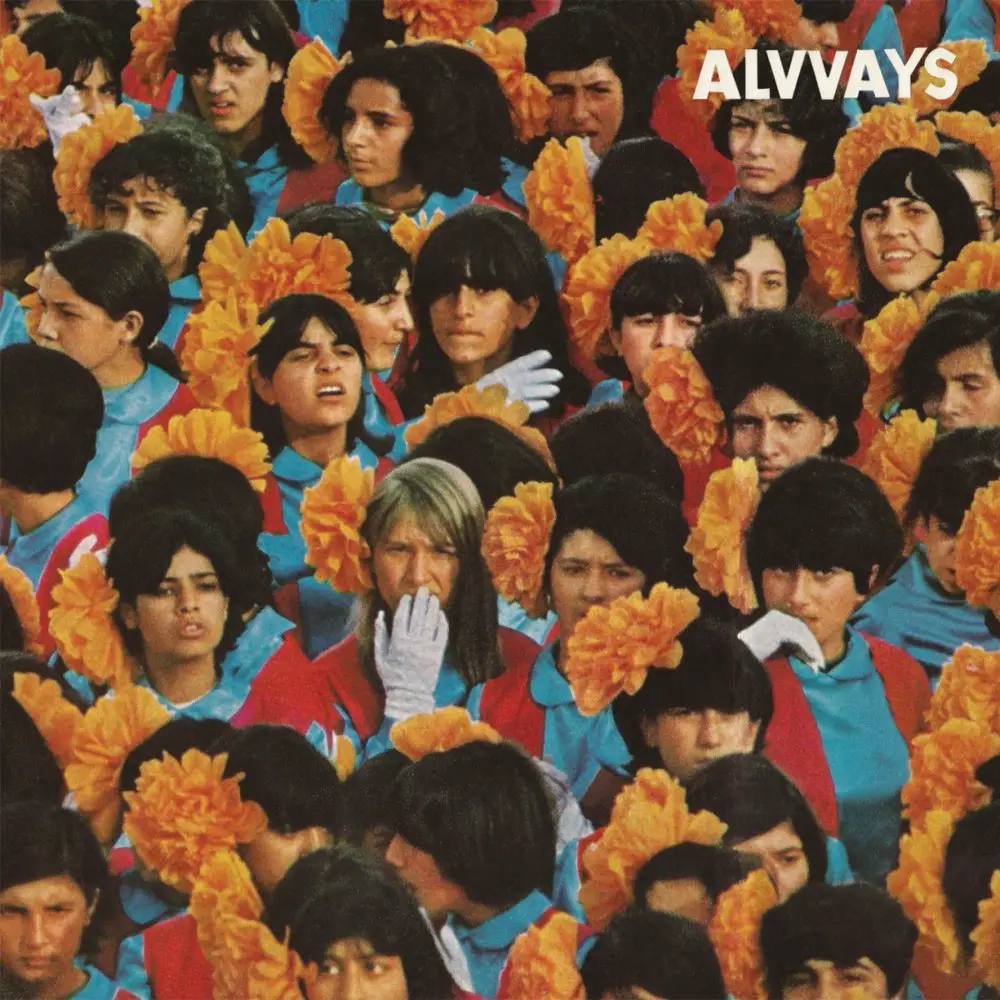Singer/songwriter Madi Diaz’s new full-length album ‘Weird Faith,’ coming off her breakthrough ‘History of A Feeling,’ as well as her time spent touring with Harry Styles, finds her continuing the exploration of the difficult and unflattering parts of herself as a means of growth for herself, and who she is within the context of a romantic partnership.
Stream: ‘Weird Faith’ – Madi Diaz
What the f*** do you want…
And sometimes, I do think about the emphasis, or inflection, or implications, we put onto our words—which part of a specific word we are compelled to put an emphasis on, in an effort to, perhaps, make a point, or to imply something that stops short of being unspoken, but is, within that implication, understood.
I think, then, too, about the emphasis, or inflection, or implications we place on a word within a sentence — what emotion we are attaching to it, whether we realize it or not, or how all of the weight we are carrying in a certain moment can come crashing down on just a single word.

The album opens with a question — one that is not answered within the song itself, and in her asking it, songwriter, singer, and multi-instrumentalist Madi Diaz is impressively subtle, practically refusing to allow the kind of natural, reflexive emotion from asking such a loaded question, to be detected in her voice.
There is no anger, or resentment present, and she quietly utters the question, “What the f*** do you want,” allowing herself to drag the final word out just a little longer before taking a breath and following it up. And, if anything, what is noticeable from how Diaz asks the question—like the tone in her voice, and what she says next, is that she is exasperated.
“What the f*** do you want,” she asks, with a surprising and understated authority that is both vulnerable and smoldering. “‘Cause I’ll give you all that I’ve got.”
The album opens with a question—one that is asked with little, if any, emphasis, or inflection, or implication placed on any specific words, or where the words is placed within a sentence. Asked out of exasperation more than anything else, the question is not answered within the song itself, though, by the end of the album, Diaz’s fifth full-length, it is.
Or, at least, she arrives at a little more of an understanding about herself, yes, but also about her connections to, and with, others.
“What the f*** do you want? ‘Cause I’ll give you all that I’ve got,” she sings. And it’s that last part that this album, Weird Faith, is most concerned with — giving so much to someone else, while still trying, as you can, if you can, to hang onto some parts of yourself.
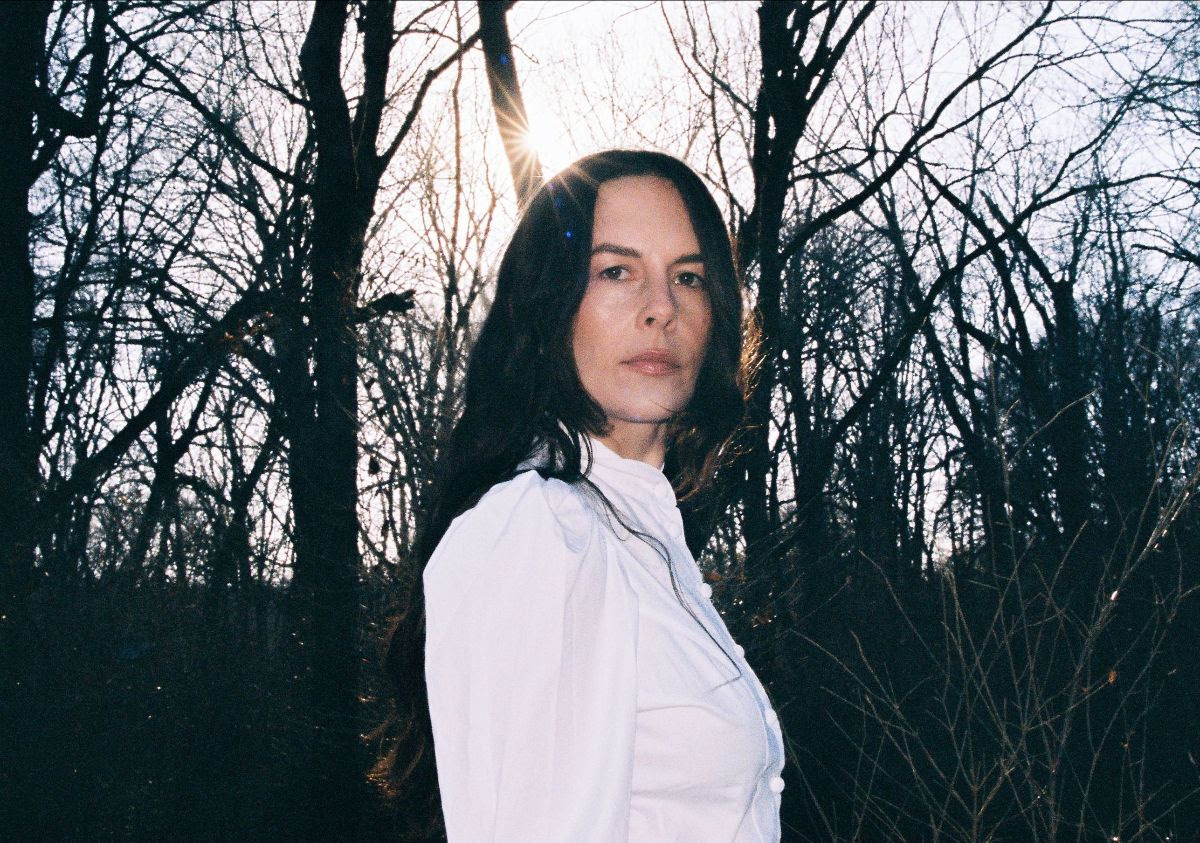
And it is audacious, you would have to admit, to have the first line, of the first song, on your album – the song that was, also, released as the first single, be that question, regardless of the tone – “What the f*** do you want.”
But, what I have come to understand about Madi Diaz as a songwriter, from both the dozen songs collected for Weird Faith, but from the material found on her 2021 effort, History Of A Feeling, is that she does know how to truly turn a phrase.
But within that ability, she has as a writer, there are different levels from which she operates—but from within those different levels, she achieves the same result.
She gets your attention.
Diaz, throughout Weird Faith, and certainly within History Of A Feeling—her fourth full-length, but a breakthrough of sorts for her as a solo artist after having spent a good part of the latter 2010s writing for others—is unabashedly and unflinchingly honest in her depictions; at the expense of herself, yes, but certainly at the expense of the antagonist from within a song.
There is this honesty—regularly difficult to hear, as it often holds a mirror up to us as listeners, and asks us to take a long look at the less flattering things we see in the reflection, but there is also her frankness. A blunt, scathing kind of humor that does bubble up to the surface and, if you are not expecting it, or just simply unaware of its presence, it can come as a complete surprise.
I am thinking about my experience listening to the gentle, short, and wandering opening track from “History,” where, she, over tenderly plucked acoustic guitar strings, allows the natural rise and fall and tumbling of her words to spill out with a delicacy, and says, “Forgive and forget? F*** you. F*** that.”
I am thinking of the spiraling, cacophonic, sneering “Think of Me,” where she boasts, “I hope you f*** her with your eyes closed, and think of me.”
She does know how to truly turn a phrase.
She gets your attention.
And from beginning to end on Weird Faith, Diaz does walk that line between the stark observations of the self (and others), with the moments of vitriolic humor, creating a razor-sharp juxtaposition that does ultimately show, with both grace and ferocity, the intelligence that Diaz possesses as a writer and performer.
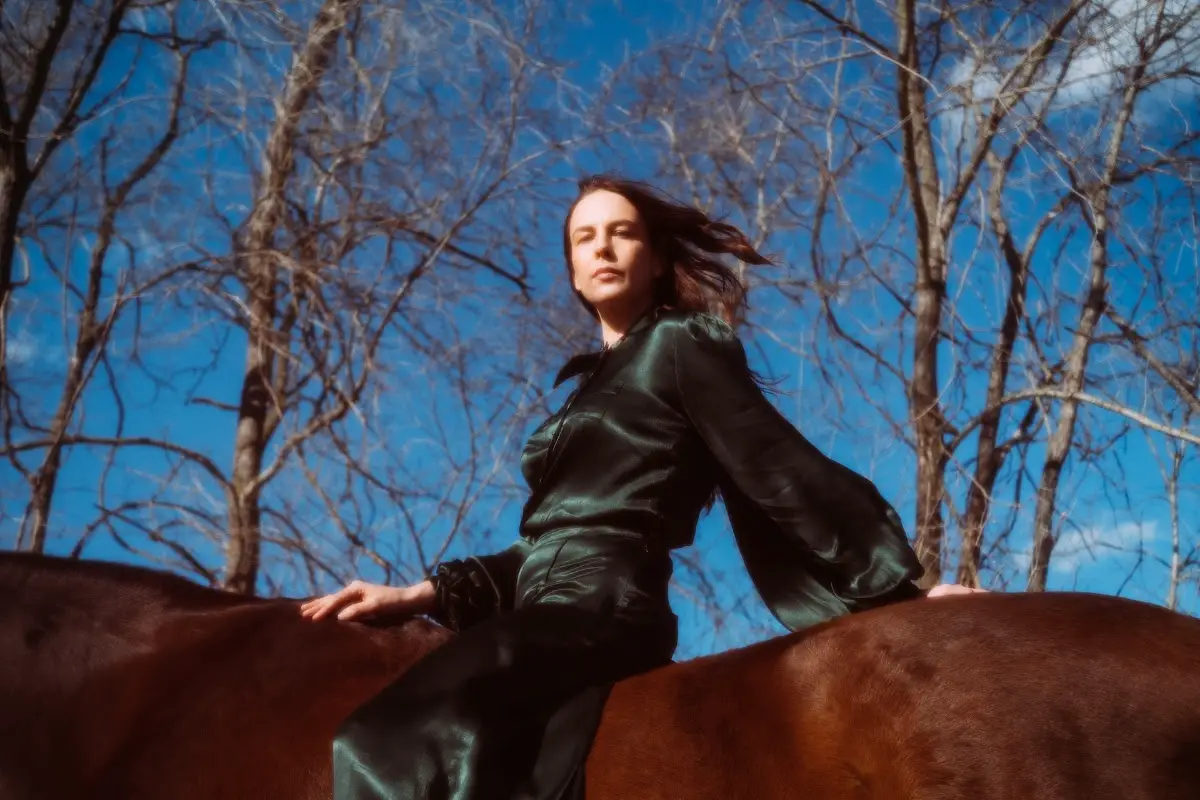
Among the terms, or descriptors, that I potentially overuse when writing about music, is what I call the idea of the “song cycle.”
Adjacent to the concept album – there is, perhaps, less of a through-line or clear narrative, a cycle of songs, and more of an emphasis on recurring themes that loosely tie things together.
History Of A Feeling was, in a sense, a breakup album—but it was also more than that because, yes, it was about the painful and confusing ending of a relationship, but Diaz’s songwriting, and the cycle of songs she was creating, went further than that, in that, by album’s send, she was trying to reconcile with herself, and not move “beyond” what had occurred, but move through it, or with it, to a place of better understanding within herself.
And among the terms or descriptions that I potentially overuse when writing about music is when I begin to unpack the idea of the “love song” and what I refer to as “songs about love.” Because there is certainly an overlap between the two things—where they are, in fact, the same, or similar.
But there are places where they are, in fact, not at all the same—because, you see, there is something implied with what what someone calls a “love song.” That it is the kind of song that is about, maybe, falling in love, or being infatuated with somebody; that it is the kind of song that more romantic, or idealistic, about the connection between two people.
A song, then, that is “about love,” can be about those things certainly, but it can be about the difficulties of being in a relationship with another person. It can be about heartbreak.
It can be about the more unsavory elements to a relationship, or to the idea of “love,” that people, maybe, do not at first associate with the emotion, or the state of being. Though, if we are being open and honest, frustrations, or challenges, or disagreements, are very much a part of every relationship, romantic or otherwise.
History Of A Feeling was, in a sense, a breakup album—a collection of songs penned around the tumultuous conclusion of a relationship, but more importantly, around the the tumult that comes afterwards, especially within. Weird Faith, is certainly not a collection of love songs, but it is a cycle of songs that are about love—specifically, the challenges, often brutally honest, that come from navigating the beginning of a new relationship.
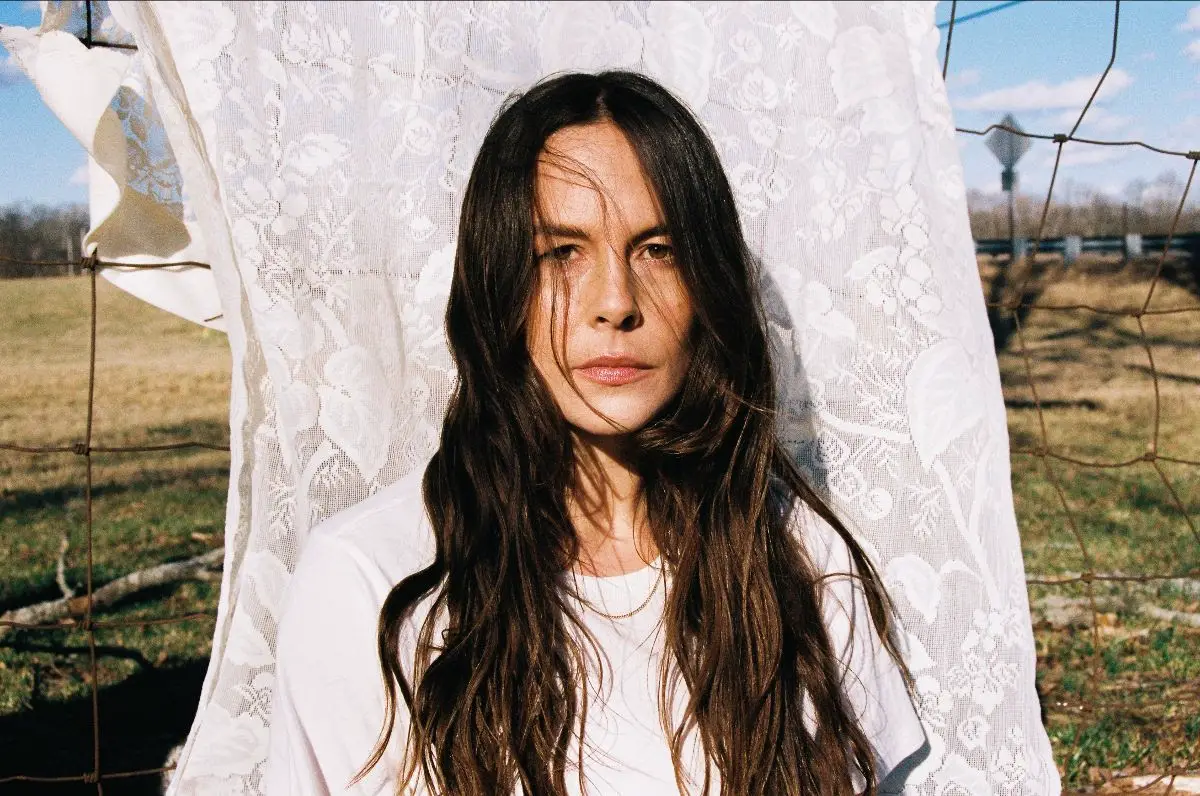
And it is admirable, certainly, that when wading through difficult, and often personal subject matter, Diaz, as a songwriter, is able to maintain, and often uses, a sense of humor – Weird Faith is by no means a “funny” album, but she is capable of trying to have a laugh, at her own expense, and hopes that once the nervousness we might feel as a listener evaporates, we are able to laugh along with her.
Because even if the humor is based around something uncomfortable, or surprising—like the candor with which she dissects the inevitable difficulties of being involved with another individual, she is, as a performer, incredibly charismatic, and that charisma and warmth, coming through within the way she commands her voice, makes us, as listeners, feel a little more welcome in the depictions of these domestic scenes.
And there is humor, yes, albeit a little uncomfortable, as the album begins, but that laughter becomes a little less nervous, and a little more smirking and genuine once Weird Faith opens up, like in the second and third tracks, “Everything Almost,” and “Girlfriend.”
The album’s third single issued prior to its arrival in full, “Everything Almost,” does take place in a literal domestic scene—with Diaz being both direct in her descriptions, as well as a little poetic, or ambiguous, as she walks back through the time surrounding her moving in with a new partner, and the anxieties that come along with that, as well as the relationship as a whole—specifically, the attempts at keeping some things just for herself, presumably both in the metaphorical and the literal sense, given the conceit of the song.
“On the ninth of May I wrote it down—I found the journal when I was moving into your house,” she recalls early in the first verse to “Everything Almost.” “‘Big love, big love,’ those were the words,” she continues. “It was gonna be big love.”
The humor, then, comes from the second verse, or as much humor as Diaz is able to extract from the imagery of a stress dream—“I had a dream there was a baby inside me—one hadn’t on my belly, and the other pointing,” she sings. “Ordering you around the house like a bitch and you just laughing, and taking it.”
Weird Faith, as a whole, is certainly not a hopeless album, but in the way Diaz writes about the difficulties navigating a relationship with a romantic partner, she is not reluctant to look for the hope, or the optimism, but there is some slight hesitation in her arrival at them.
“Is it gonna be okay if we really do this,” she asks tentatively in the bridge of “Everything Almost.” “Build a family, build a life. Dad always used to say, ‘You can have everything, but not all at the same time.’”
Musically, Weird Faith finds Diaz expanding on the pallet that she was working from on History Of A Feeling—transcending what you think of when you hear the expression “singer/songwriter,” and yes, while there are a handful of songs within the album that do find her strumming or gently plucking the strings of a resonant acoustic guitar, but from beginning to end, regardless of how sparse an arrangement is, or how fully developed in sound it might be, there is a warmth and a robustness, and from her years spent penning songs for others, even within the album’s most harrowing and personal movements, she never loses the sense of accessibility and pop sensibilities.
The songs might portray difficult or uncomfortable things, but they are nearly always infectiously written and executed.
“Everything Almost” opens with just Diaz’s voice and the kind of muted strum of her electric guitar before the precise, crisp-sounding percussion kicks in and is ultimately bashed out underneath her, with all of it building just slightly on the way to the chorus—not so much building until it explodes but certainly reaching a point where there is a kind of snarling, ramshackle feeling to the instrumentation continues in a relentless, pulsating rhythm.
Subsequently, “Girlfriend” is the album’s first sonic turn inward – with a bulk of the song based around Diaz’s quiet guitar playing with a tasteful amount of reverb applied to the sound coming from her amplifier, before she’s joined by the piano, and the thumping of a bass drum during the song’s bridge.
And for as, perhaps, uncomfortable as the humor was as she worked through the domestic scenes depicted in “Everything Almost,” and the larger idea of how much of yourself can you retain, or stay true to, when you enter into a long term relationship, “Girlfriend” is just as, if not more, discomforting because it focuses specifically on the baggage that does, ultimately, come within a relationship—your new partner’s former partner.
Diaz handles the subject matter with as much grace and wit as she can, though there is a smirking undercurrent that continues to ripple through “Girlfriend.” In the opening lines, she confesses, “In some kind of alternate universe, we might be kind of close,” before taking a step in the direction of, if not jealousy, then at least a raised eyebrow. “It’s only weird when you call him,” she explains. “It’s only we’re because we’re not friends.”
And for as gracious as Diaz attempts to be, or at least as understanding as she wishes to be, she does twist the knife with at least one line: “Not to f*** you up, but we’re so in love,” she boasts, before sliding effortlessly back into the chorus where the lines are slightly more pointed—“You make it weird when you call him,” she sings this time, much more direct.
“I don’t want you to see that I forget who I am,” she sings in the chorus. “Yeah, I know, I wouldn’t want me to be my ex-boyfriend’s new girlfriend – so, sorry, I’m your ex’s girlfriend.”
And for as much audacity as there is in the opening line of the album’s first song, Diaz does continue to make use of her ability to grab your attention with the turn of her phrases the further you make your way through Weird Faith, like in the slithering, groove-oriented “KFM,” where, under the quickly plucked strings of the acoustic guitar, before the song tumbles into an entrancing rhythm, she captures your attention with a startling opening verse—like the whole thing.
“Man, you piss me off,” she begins, audaciously. “Except for when you’re not. I don’t want you to stop making me thinkin’ it’s so hot I don’t know what you want until your hands are on my body.”
The initials “KFM” do stand for what you might think they do – a slight rearranging (to fit within the melody she has assembled) of the popular game “Marry F*** Kill.” And here, with the song placed within the final third of the record, thematically, it does return to the tensions depicted within songs found in the earlier half, like “Everything Almost,” though here the stakes aren’t exactly higher, but the urgency to work through these feelings of both loving someone but also being absolutely frustrated by them within the same breath, is palpable and bubbles up to the surface while the song’s instrumentation seductively slinks in a state of restraint.
The unsettling but playful strain continues in the song’s second verse. “I can be a dick — you don’t know when to quit. Dishing it out comes with taking it,” Diaz contends, as she and her partner serving as an off-stage antagonist of sorts, continue to try and find the balance between tension and release, that at first glance, seems like a volatile situation, but there is, also, a sense of hope and a sense of humor that is clung to while Diaz coos, “I want to kill f*** marry you forever,” in the spiraling chorus.
With as evocative as Diaz can be in the portraits she paints of these kinds of scenes from within the different stages of a new relationship — looking forward to the hope, or promise, but still nervous or approaching with some trepidation, she can turn as equally as impressive of phrases when she turns those narratives inward, which she does throughout Weird Faith, in the smoldering, pensive, and thoughtful “God Person,” and the deprecating, scathing “Get To Know Me.”
And it makes sense, I think, that a song with a title like “God Person” would be, overall, extremely soulful in sound and in feel – there is a palpable searching that Diaz explores in it, from the quiet, atmospheric way it opens, with Diaz’s vocals floating through a kind of wandering, nearly directionless or at least very loose melody, before she settles into a real, albeit quiet, rhythm, when the strums of the guitar come in at the chorus, which is where the song stays. It isn’t so much a place of tension, but it does come from within a place of restraint, musically, because save for when the atmospherics build and then crest, Diaz keeps a tight hold on “God Person”’s structure, and, smartly, wants both her thoughtful songwriting, and the devastatingly honest vocal performance in the song to be the focus.
Diaz, in the song, states that she is not a “god person,” which is exactly what it sounds like – despite the use of the word faith in the album’s title, it is implied that the faith that she has not been able to find or make a connection with, is a sort of spirituality, both within organized religion, but also with something much larger – a feeling that comes from observing the world around you.
Like Diaz, I am not a “god person” either, despite my religious upbringing. I was, for reasons I might never understand, raised Catholic by my parents, and from fifth grade on, I attended a Catholic school. But that doesn’t—at least for me it didn’t—always make you a believer, or someone with an wavering faith in something you cannot see.
The depictions of her search, and her observations, throughout “God Person” are, as you might anticipate, captivating and moving.
“Back row of the room, I show up alone. I come here to watch other people know what I can only guess at,” she begins tentatively in the song’s opening lines. “‘Cause I’m never sure, and I don’t like commitment if there’s something more.”
“They sing their songs—closing their eyes,” she continues, with a tenderness in her descriptions. “Seeing the light in a different light. How does that happen—why is it beautiful? Why is it magic, and tragic? I don’t know.”
In early October, my spouse and I traveled from our home, south of the Twin Cities, to Duluth, Minnesota, on the shore of Lake Superior. Across the road from our rustic, but comfortable, lodging, was the lake itself—and at night, aside from the occasional whooshing of a car driving by, all you could really hear in the stillness was the sound of the water rolling and splashing against the rocks of the shoreline.
And from the shores, yes, you could look south and see the glow of the city’s lights at night, but the sky itself, dark, but remarkably clear, and full of bright stars.
I am not a person who often takes the time to truly observe, or remain in, moments like that—something quiet and something breathtaking. But I tried, during this time when I was away from the comforts and convenience of my home and daily routine, to make the time to, in observing what was around me, to remain in it as long as I was able to.
To find some kind of peace in the beauty that I so often overlook, but could, and certainly should, find ways to appreciate more than I do.
My best friend lived in Duluth for a number of years when she was in her 20s, and in a conversation we were having, I asked her if she, too, had ever like stopped just to look up at the sky, or stand by the lake and embrace the kind of majestic, wondrous nature of it all—she told me, emphatically, yes. That standing by the water, and gazing out, and realizing that it was so big, and that she was so small, and that there is always something much larger ahead of us—waiting for us to arrive, was something she did regularly during her time within the city, and that it did provide so much comfort during times of uncertainty or duress.
And I say all of that to say this—Diaz, the further along she pulls us into the fabric of “God Person,” does begin searching for meaning, or something more, in the world around her.
“Looking at the sky, staring at the ocean. If there’s something to know, then I wanna know it,” Diaz proclaims in the second verse, growing more urgent to find the god in something out there that she can grab ahold of. “I wanna hold it. I wanna feel it. Maybe I can’t say that I’m not a god person.”
“I see the sky, and I see the ocean—where it all came from and where it’s going,” she continues near the song’s end. “I’ll never know, but sometimes I can feel it.”
“I’m not a god person,” she concedes. “But I’m never not searching.”
And for as robust of an album, and as full of a sound as Diaz can create at different points on Weird Faith, she also knows when to turn things inward, creating a more pensive tone, which she does on the self-effacing “Get to Know Me,” which begins spectrally with a quiet acoustic guitar strum and eerie atmospheric sounds drifting in the background, with the music then swelling quickly, before receding, offering a kind of punctuation to drive the points home in the chorus, with thundering percussion and cancerous, open, and mournful piano notes.
And, for as much audacity as Diaz boasts in the opening line of the album’s first song, she continues to make use of that ability to grab your attention with her phrase turns—“Get to Know Me,” before it begins its descent toward its depths, is one of those songs.
“Everybody’s got their sh** – no one here is exempt.”
And, believe it or not, I would say that for as deprecating and dark as “Get to Know Me” is, it is certainly not a love song, but it is, I think, a song that is about love.
And I have written, in the past, not extensively but enough that it has become a theme that I feel compelled to revisit as I am able, about that I do not consider myself to be easy to love—something that is both met with skepticism, and is agreed upon, from the people who I am the closest with.
Regardless of how much, or how little, truth there is to this in the eyes of others, I feel that I am difficult to love because a lot of the time, I am capable of being a difficult person — i.e., the thing about being an extremely depressed individual, such as myself, is that you eventually being pulled so far into your own darkness, you fail to see how your declining mental health is impacting those around you.
Specifically, how you treat, or behave towards, those around you.
And there is a lot of music that does not wish to be listened to analytically—a lot of pop music wants to have a good time, and it would like if you, as a listener, has a good time along with it. And while I am, with the more pop music I find myself listening to, coming to have a better understanding and appreciation for a song that is just about crafting a vibe and nothing else, I am still drawn to the melancholic, or the dark, or the somber—the songs that make you, for lack of a better expression, both seen and attacked.
“Get to Know Me” is one of those moments where Diaz is at her most honest and confrontational (towards herself). It is difficult to hear, and it is a moment where she does hold up a mirror to us as listeners, and does ask that we take a long look at the less flattering things we see in the reflection.
She does it with a gracefulness, yes, but also a bluntness: “I’m not scared to show that side but I’m afraid you’ll run and hide if we really get down to it,” she confesses to her partner.
In that gracefulness and bluntness, there is a scathing kind of humor—though the bleakness of the lyrics ultimately overshadow any attempts to light the mood. “Have you met when I’m belligerent,” she asks. “iI might make you cry. “Have I intruded insecurity yet? Wish I could tell you why…you’ll meet low, and you’ll see lonely if you ever hold me closely—how well do you wanna get to know me?”
She gets darker, or more honest, and the song becomes much more relatable, at least for someone like myself, once the second verse begins with a line that I think is even more compelling than the one she opens the song with. “Sometimes I find a pillow, and I empty out my lungs. I keep my room dark enough to obscure skeletons.”
“Did I get to my anxiety?” Diaz asks shortly thereafter. “I can’t play it cool. Did you get to my negativity yet—when my glass is never half full.”
And for as stark and unflattering of a portrait as Diaz paints of herself on “Get to Know Me,” there is just a sliver of hopefulness as she nears the end: “There’s a world living inside my head—do you wanna slow it down,” she asks. “And if you get a real good look at it, are you gonna stick around? How well do you wanna get to know me?”
That last line, there, isn’t intended to be threatening, I don’t think, but it can be perceived as maybe a warning, or at the very least a dare, given what ‘Get to Know Me” is about.
And I have written in the past about how I do not consider myself to be easy to love. I don’t think I was always this self-aware—it is something that comes with enough time and the you find yourself in enough difficult or tense moments when you are, in factm the one who is at fault when something has gone awry in your relationships, romantic or otherwise.
And this belief, regardless of how much agreement or skepticism it is met with, depending on who you ask, is the reason why this song, out of all of the ones on Weird Faith, I took the most personally. It isn’t a love song, but it is a song about love—one of the more difficult things that come with loving someone.
How well do you wanna get to know me?
You hold your breath and hope for, in return, the best answer.
What the f*** do you want? ‘Cause I’ll give you all that I’ve got.
Even though Weird Faith ends with the snarling, kind of final exhalation of “Obsessive Thoughts,” which almost serves as a bit of an afterword to the album, because it is truly bookended in terms of its themes, by the swirling, swooning, gorgeous “Same Risk,” and the meditative, inward-looking title track, which finds Diaz on the cusp of finding what she has been looking for.
And among the terms, or descriptors, that I potentially overuse when writing about music, is what I call the idea of the “song cycle.” Adjacent to the idea of the concept album—there is, perhaps, less of a through line or a clear narrative within a cycle of songs, with there being more of an emphasis on securing themes that loosely tie things together.
But every cycle has a beginning and a conclusion.
“Same Risk,” as the opening song and more or less a declarative statement for the album, is not the beginning of the narrative within Weird Faith—the song, lyrically, already picks up with the relationship, in question, already in motion. And what Diaz does is drop us into a pivotal moment—a kind of make-or-break moment when she and her partner are attempting to figure out, as best as they can, where things are going.
And there is, as much as there can be, a sense of humor—albeit a biting one, in how Diaz walks us through this moment, as if we are in the room with her, watching it unfold. And within that humor, there is a terrible frankness—she is, perhaps, the most blunt out of all the songs on Weird Faith on this opening track, though perhaps that does not come as a surprise, given what the opening line to “Same Risk” is.
“If you lay in my bed, I know we’re gonna have sex,” she exclaims. “It’ll happen so fast—make a suicide pact, and you can’t take that back.”
Diaz wastes no time getting to the conceit of the song, as well as leading us right into this make-or-break moment, and spells it all out in the chorus—both her worries, but also the little sliver of hope that it is, in fact, a good idea to enter into this relationship. “Do you think that this could ruin your life,” she asks, as the music gently swells and sways around her. “‘Cause I could see it ruining mine. And I feel mean for even thinking this, are you gonna throw me under the bus? Make me take the hit for the both of us? All that I am asking is, are we taking the same risk?”
And there is, then, a declaration within the bridge to “Same Risk”—it is worth noting that Diaz, as a songwriter, shows on literally every song on the album that she can write the absolute hell out of a bridge—“I’m standing here naked saying you can have it all,” she bellows. “And it’s all out on the table—and I’m feeling unstable. Will you catch me if I fall?”
The questions she asks throughout “Same Risk” are not answered within the song itself, obviously, but we, as listeners, catch glimpses of the answers, or at least the direction this relationship is heading, however tumultuous it can be, the further into Weird Faith we are pulled.
The title, and penultimate track—arranged rather tenderly, and sparsely, with just Diaz’s acoustic guitar strings, delicately plucked underneath her resonant voice—finds her both reflecting, wanting to grow, and arriving at not so much at a conclusion, but at the most resolution she is going to be able to within the confines of this record and the cycle of songs that are included.
And it is in the meditative, pensive nature of “Weird Faith,” where there is also the most hope, or the most optimism, for Diaz, and for us, moving forward, regardless of what comes our way. “You can treat it like it’s magic — you can hold it not to have it,” she sings in the chorus. “Every love brings a lesson, and you’re gonna be tested. So try to have a heart of gold, and try to have weird faith.”
As there was with History of A Feeling, there is a very deliberate pacing to Weird Faith – it isn’t a slow album by any means, but it does burn slowly, if that makes sense.
I think there’s a difference, because in that slow burn, Diaz has built the songs around a gradual rise and fall, both in the narrative thread, but also in arranging, instrumentation, and the feeling of the songs themselves.
And like History of A Feeling before it, even with the uncomfortable themes or difficult things that Diaz is unpacking in her songwriting on Weird Faith, she does so with an incredible tact so that the album, even in its most unflinching moments of honesty, or when it does present you with a flattering glimpse into yourself, is never uninviting or inaccessible, and is continually compelling – an extraordinarily personal journey that also serves as a refreshingly bold and, yes, audacious, artistic statement.
— —
:: stream/purchase Weird Faith here ::
:: connect with Madi Diaz here ::
“Don’t Do Me Good” – Madi Diaz & Kacey Musgraves
— — — —

Connect to Madi Diaz on
Facebook, Twitter, TikTok, Instagram
Discover new music on Atwood Magazine
© Muriel Margaret
Weird Faith
an album by Madi Diaz

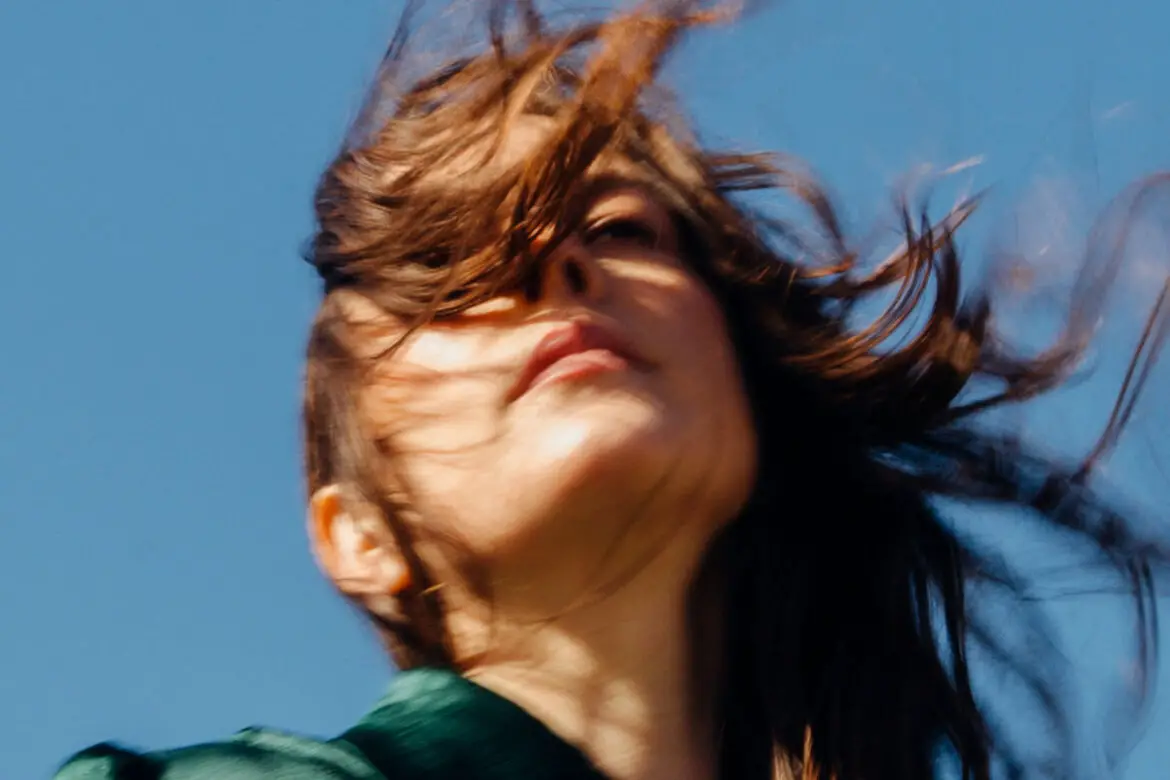
 © Muriel Margaret
© Muriel Margaret

